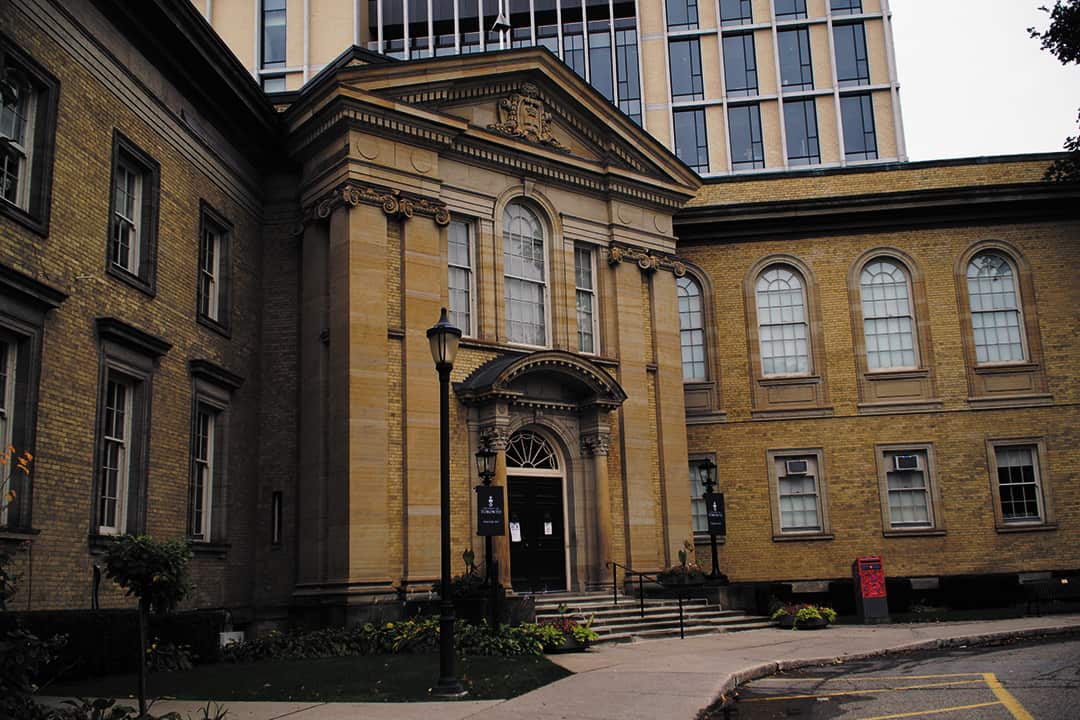The UTM Centre for South Asian Civilizations, along with over 45 universities, co-sponsored the Dismantling Global Hindutva conference that was held online from September 10–12. Following its announcement of the event, the conference’s organizers and speakers, who are not directly affiliated with U of T, became the subject of harassment and criticism, with protests outside of U of T accusing the conference of being anti-Hindu.
In response to the criticism, the media team for the conference disputed this characterization in an email to The Varsity. The team wrote that the conference does not aim to criticise Hinduism, but rather the separate ideology of Hindutva.
The conference, which consisted of nine seminars across three days, focused on the rise of militant Hindu groups in India and the corresponding escalation of violence — specifically, violence against Muslim people and other religious minorities. Its target was to critique the 100-year old ideology of Hindutva, which was inspired by European fascism.
Other major academic co-sponsors of the conference included Harvard University, Yale University, Princeton University, Stanford University, University of California Berkeley, Columbia University, University of Pennsylvania, University of Chicago, and New York University.
Background of Hindutva
According to the conference media team, Hindutva is a political ideology that is “actively eroding India’s democracy and harming the most vulnerable communities in India,” unlike Hinduism, which is a religion consisting of “a wide range of religious practices and beliefs.”
The term ‘Hindutva’ was first articulated by Vinayak Damodar Savarkar in a publication in 1923 as an “ethno-nationalist majoritarian ideological project.” The Hindutva ideology is a Hindu nationalist ideology that posits that India is fundamentally a Hindu country, as it is defined by a Hindu cultural ethos.
Hindutva claims that Hindus are the “true and authentic inhabitants” of India, and Muslims and Christians along with other minority religious groups are “outsiders” who are only allowed to live in the country by the grace and willingness of the greater Hindu population.
It is important to note that the Citizenship Amendment Act (CAA) provides Indian citizenship to people who identify with persecuted religions, such as Hindus, Sikhs, Buddhists, Jains, Parsis, or Christians from countries like Afghanistan, Bangladesh, and Pakistan who have resided in India before 2015.
However, the bill has been widely criticised as being discriminatory, since it does not include religious refugees who are Muslim. It was also protested by groups in the northeast, who did not want the government to grant citizenship to refugees and migrants. Some believe the exclusion of Muslims from the bill was deliberate, in line with the Hindutva ideology followed by the ruling party.
Conference’s media team battles miscommunication, criticisms
Hindutva is a political ideology that the organizers of the conference believe needed to be studied and put under scrutiny.
Protestors outside U of T asked the university to revoke its endorsement of the conference, criticizing it as anti-Hindu. However, the conference’s media team wrote that this criticism was caused by misinformation, as the conference opposes the ideology of Hindutva, rather than Hinduism.
“We categorically reject any insinuations that to critique Hindutva is to attack Hindus,” wrote the media team.
The media team has made multiple efforts to display their viewpoint on the differences between Hinduism and Hindutva. “The two are completely different things, as our website has made clear from day one.”
The conference was organized by professors and graduate students who are scholars of India, including those from India and of Indian origin.
Multiple speakers identified as practising Hindus, while others considered themselves “philosophically or sociologically Hindu.” None of the speakers were monetarily rewarded for their presence at the conference. They participated “out of integrity, and out of a commitment to academic freedom and the right to critique Hindutva ideology.”
The media team confirmed that the conference organizers and speakers have received death threats. No conference speakers accepted The Varsity’s request for an interview.
The conference’s organizers have created a Press page on their website to stop the flow of miscommunication around the conference.


